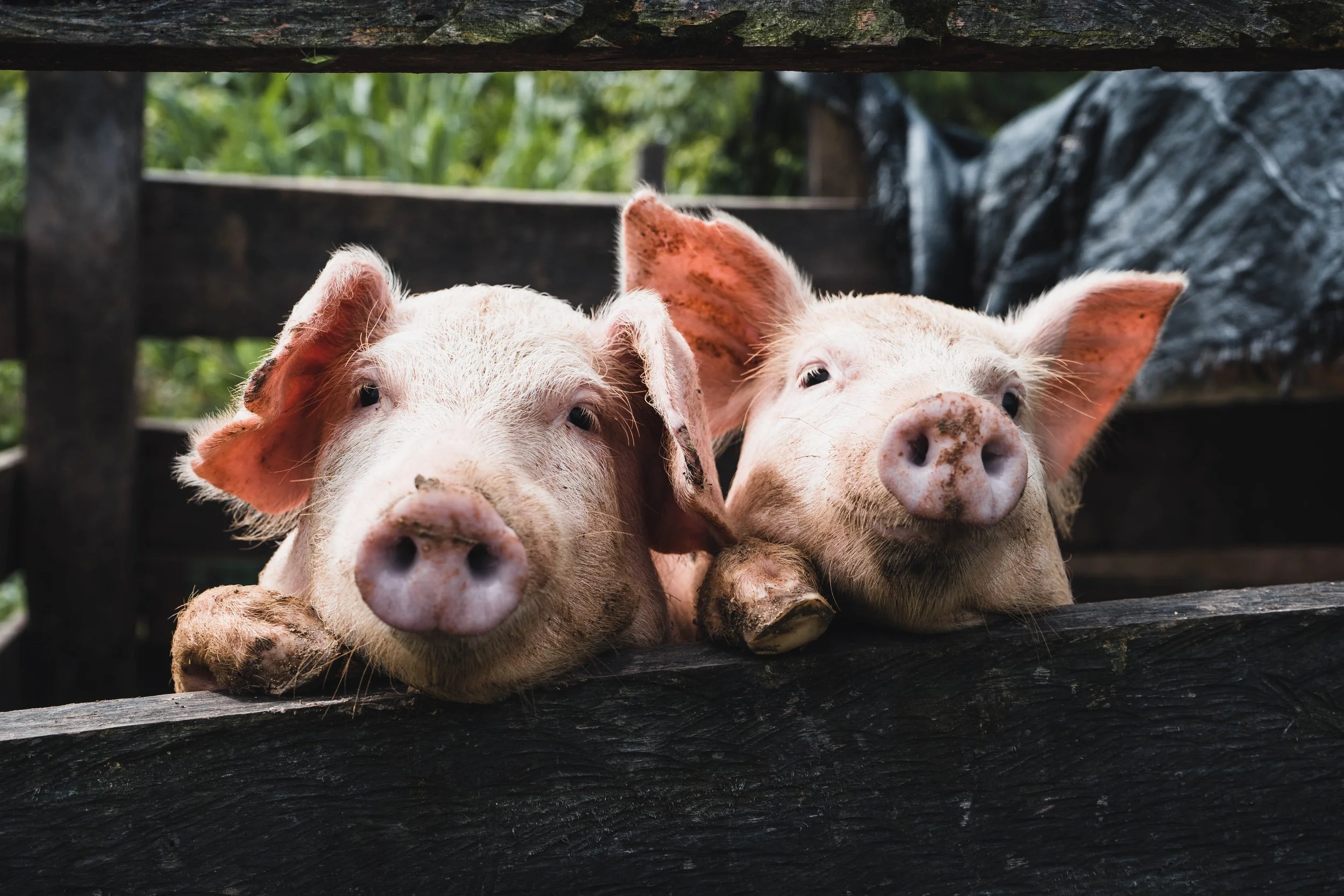Supreme Court pig case raises questions of the extent of states’ power
The Supreme Court’s responses to California case, National Pork Producers v. Ross, reflects a divide in thinking between conservative and liberal justices. UNSPLASH
The U.S. Supreme Court recently analyzed the California case National Pork Producers Council v. Ross, which challenges the Prevention of Cruelty to Farm Animals Act, more commonly known as Proposition 12.
The law is a ballot measure that California voters accepted in 2018, creating minimum square footage requirements for the enclosures of animals like breeding pigs, veal calves and egg-laying hens in cages.
Starting in 2020, Proposition 12 required farmers to keep confinements for calves no less than 43 square feet per calf and their spaces for egg-laying hens no less than one square meter per hen. Starting in 2022, the law prohibited areas for breeding pigs and their offspring that gave less than 24 square feet of space per pig.
The law also updated rules for egg-laying hens’ spaces, only allowing hens in indoor or outdoor cage-free enclosures, which gives each hen between one and 1 1/2 square feet of space and room to move, according the United Egg Producers’ 2017 recommendations.
The National Pork Producers Council (NPPC) and the American Farm Bureau Federation (AFBF) filed a lawsuit against the measure in 2019 as they had reason to believe that California was violating Article 1, Section 8, Clause 3 of the Constitution, also known as the Interstate Commerce Clause. The clause gives Congress the authority to “regulate commerce with foreign nations, and among the several states, and with the Indian tribes.”
“Small farmers and ranchers aren’t in a position to be able to afford the types of requirements that Prop 12 requires,” Travis Cushman, the deputy general council of the American Farm Bureau Federation, said in an Oct. 11 Federation article. “Prop 12 is a law that tells farmers in other states how they need to conduct their operation, and in doing so, it's creating requirements the average small farmer won’t be able to comply with.”
The farmers hit hardest by Proposition 12 are out-of-state farmers, who provide 99% of California’s pork.
“It would reduce the number of sows in a given facility by 40%,” Heidi Vittetoe, co-owner of Iowa pork production company, JWV Pork, said in a story published by Southeast Iowa Union. “There are costs associated with that, both to construct it, but also because when a barn or facility only can yield 60% of what it previously did, there has to be a commensurate improvement in price on the other end.”
Conservative and liberal justices agreed with the pork producers that Proposition 12 was unconstitutional but communicated reservations about the impact of striking the law down. However, their lines of questioning differed from each other.
“Could you have California pass a law that said we’re not going to buy any pork from companies that don’t require all their employees to be vaccinated or from corporations that don’t fund gender-affirming surgery?” Justice Amy Coney Barrett asked during the hearing.
Justice Elena Kagan also shared an example of a similar case in which a New York law required firewood companies to spray their firewood with pesticides before shipping the firewood into the state.
“Would that be forbidden?” Kagan said at the hearing. “We live in a divided country, and the balkanization that the framers (of the Constitution) were concerned about is surely present today.”
Chapman University political science professor Ronald Steiner told The Panther that the NPPC and the AFBF have some hope to win the Supreme Court case.
“The pork producers have at least some chance to win the case, even though their claims were dismissed by both the Federal trial court and the appellate court,” Steiner said. “There’s real confusion among judges and lawyers over how much state-level safety and morals legislation, like this California rule about humane treatment of animals, can impair interstate commerce. The fact that the Supreme Court felt the need to take the case shows how much uncertainty there is.”
David Feldman, a professor of political science at the University of California, Irvine, told The Panther about the impact that National Pork Producers Council v. Ross could have on other cases related to states’ authority if the NPPC and the AFBF do end up winning.
“I think the long and the short of it is that no one is really quite certain what the implications would be,” Feldman said. “This is something that a number of the justices raised — both the liberal justices as well as the more conservative justices — is where would you draw the line on what a state could prohibit or allow? Do you draw (the line) on issues of legitimate social benefits, but a state using that as a means of restricting some sort of trade?”
The U.S. Supreme Court is expected to decide on a verdict for the case by next summer.

